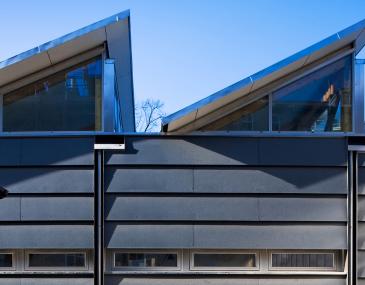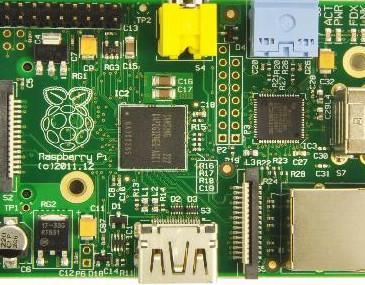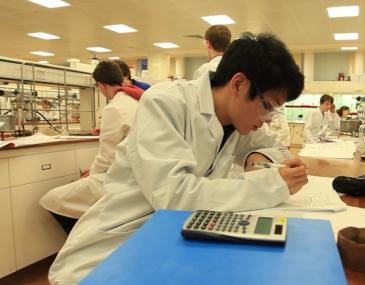This information is for applications with entry in 2024. Please check from end of May 2024 for updates to applications for entry in 2025.
Entry Details
- Typical intake per year: 18
- Typical offer: A*A*A for A Level or 40-42 points with 776 at Higher Level for IB
- Required subjects: Mathematics for A Level or Higher Level Mathematics: Analysis and Approaches for IB, and A Level/IB Higher Level Physics
- Useful preparation: A Level Further Mathematics is very strongly encouraged.
If unavailable or if you have recognised its desirability too late, we would advise you to do as much additional pure maths and mechanics as possible, e.g. by studying advanced material or Further Mathematics AS Level. - Admissions assessment: Yes, required at Queens' - a Pre-Registration Assessment
- Submitted work: No, not required at Queens'
Course Details
The Cambridge Engineering course is distinctive, providing you with a broad education in engineering fundamentals in Part I (Years 1 and 2) followed by in-depth training in your chosen professional discipline in Part II (Years 3 and 4).
Information about the course structure, departmental teaching arrangements, offered topics and options can be found on the University of Cambridge website: Engineering Course Outline
Engineering at Queens'
Engineering at Queens’ is unique in that we are offered examples classes in addition to supervisions from the very first year, which not only encouraged group cohesion and collaboration academically, but also meant that the engineers here are a very tight-knit community. Queens’ also has a cohort size which is on the larger side compared to other Colleges, meaning that during specialisation in the 3rd and 4th years you are very likely to have other Queens’ engineers in your specialisation area.
Vidhi
Compared with the experience at many other Colleges, Engineering at Queens' is different. We place great emphasis on our teachers and students collaborating to build a strong and inclusive academic community: this ensures the best possible environment for personalised teaching and also peer support. We encourage independent learning and go out of our way to support students who wish to broaden their knowledge through extracurricular, engineering-related activities.
We achieve these goals through two innovations. The first is that we provide every student with just two academic supervisors during the first two foundation years. You will see each of these supervisors every week. Broadly speaking, one of them teaches mechanics, structures, materials and thermofluids; while the other teaches electricity, electronics, information and mathematics. At other Colleges, you might be provided with a different supervisor for each of the four papers in the first year, and for each of the seven papers in the second year, seeing each supervisor relatively infrequently. At Queens', students and supervisors see each other more often and consequently get to know each other better. Supervisors invest a lot of energy in their students, take a keen interest in their progress, and are able to adapt their teaching style to each student's individual needs.
The second innovation concerns our extensive use of whole-cohort examples classes during the first two years. The Cambridge norm is to provide all engineers with roughly two supervisions a week, or four per fortnight. At Queens', we provide three supervisions per fortnight, supplemented by two whole-cohort examples classes. The use of larger classes for some of our teaching allows us to increase contact hours by one hour per fortnight. We tend to tackle the frequently asked questions in examples classes, freeing up the small-group supervisions for more individualised teaching and learning. Most importantly, we find that getting all the Queens' engineers together, every week for an examples class, increases group cohesion and encourages peer support. Queens' has an exceptionally well-integrated undergraduate Engineering society, organising formal events (dinners, speaker evenings etc.) but also, more generally, just being there for each other.
Queens' unique approach to engineering teaching and learning has been a blessing during my first year. As a student here, you never feel like 'just another undergraduate' that teachers have to deal with on top of their research commitments. I have made friends with engineers at many other Colleges, and now being able to better appreciate the differences, I would still choose Queens' if I had to start over.
Basil
Not only is the Queens' style of teaching popular and effective, it is also more efficient than the traditional approach, freeing up funds to support other types of learning. All Queens' engineers are able to access the Queens' Undergraduate Engineering Learning Fund (QUELF), which they can use to help purchase essential equipment (e.g. tablets and laptops) and also pay for extracurricular learning opportunities during the vacations. For example, in recent years the QUELF has funded trips to academic conferences, courses on bicycle frame building, equipment for a new robotics society and accommodation expenses during periods of industrial experience.
Finally, Queens' admits a cohort of around 18 engineers every year. This means that you are unlikely to find yourself academically isolated studying Engineering at Queens'. Even when you specialise in the third and fourth years, there are bound to be other Queens' engineers studying the same papers as you.
Gap years
Queens' welcomes applications from final-year school candidates intending to take a gap year, and from post-qualification applicants embarking on a gap year. Many such students spend the year gaining valuable industrial experience, often through the Engineering Development Trust's Year in Industry scheme. They maintain their mathematical fluency by following the LUMEN distance learning maths course, which goes beyond Further Mathematics A Level to cover some first year university material. At Queens', we find that the life skills acquired during gap years, and particularly the experience of living and working independently, stand students in good stead for university life.
Engineering at Queens’ is a transformative experience because of the resources and support available and the close-knit community among all Queens’ engineers. In particular, the Queens' Undergraduate Engineering Learning Fund (QUELF) provides unique and personal opportunities to explore our interests and make meaningful achievements outside the curriculum. For the past three years, I have been fortunate to receive QUELF funding every year to support my own passion for LEGO, my internship in another city, and a society project I lead.
Billy
Academic and Teaching Staff
Engineering at Queens' is great due to the quality of the teachers and the proximity of the College to the Engineering Department. Studying Engineering provides the best balance between theory and practice. No other course opens as many doors.
Nicholas
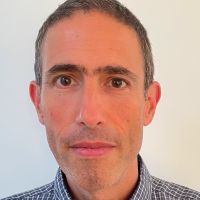 Professor Andrew Gee, Director of Studies, see also Andrew Gee | Department of Engineering
Professor Andrew Gee, Director of Studies, see also Andrew Gee | Department of Engineering
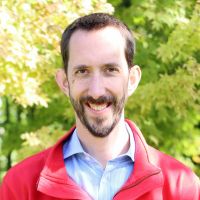 Dr Tore Butlin, see also Tore Butlin | Department of Engineering
Dr Tore Butlin, see also Tore Butlin | Department of Engineering
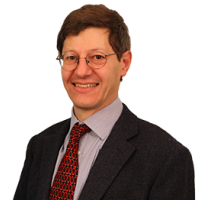 Professor David Cebon, see also David Cebon | Department of Engineering
Professor David Cebon, see also David Cebon | Department of Engineering
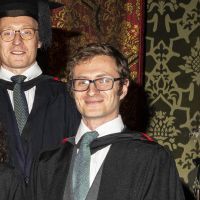 Dr Chris Clark, see also Chris Clark | Department of Engineering
Dr Chris Clark, see also Chris Clark | Department of Engineering
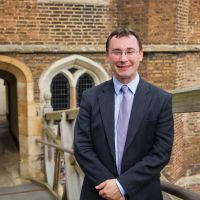 Dr Graham McShane (Notley Fellow in Engineering), Assistant Director of Studies, see also Graham McShane | Department of Engineering
Dr Graham McShane (Notley Fellow in Engineering), Assistant Director of Studies, see also Graham McShane | Department of Engineering
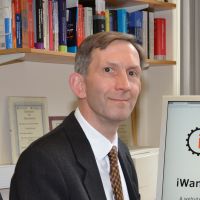 Professor Richard Prager, see also Richard Prager | Department of Engineering
Professor Richard Prager, see also Richard Prager | Department of Engineering
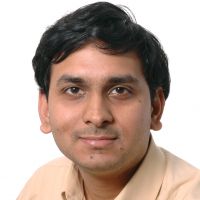 Professor Ashwin Seshia, see also Ashwin A. Seshia | Department of Engineering
Professor Ashwin Seshia, see also Ashwin A. Seshia | Department of Engineering
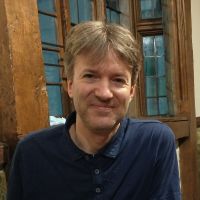 Professor Graham Treece, see also Graham Treece | Department of Engineering
Professor Graham Treece, see also Graham Treece | Department of Engineering
The Queens' Engineers are the most collaborative, mutually supportive, cohesive, friendliest and most fun subject group I've encountered at Cambridge, an opinion shared by many across other Colleges and subjects. There is a strong feeling that we're in it together and that there's always someone there to help.
Kostas
